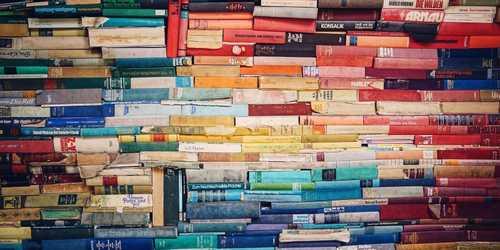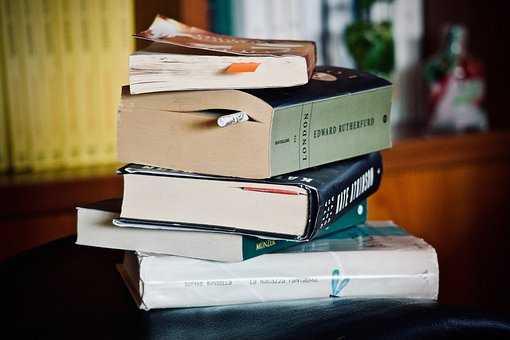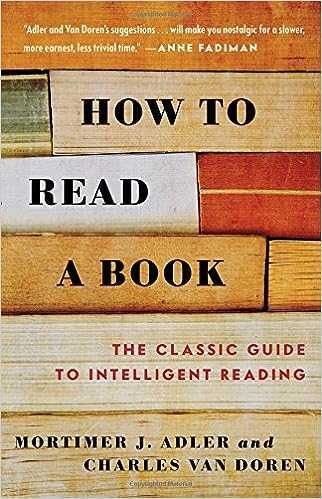Powerful Techniques to Build a Reading Habit
Curated from: nickwignall.com
Ideas, facts & insights covering these topics:
15 ideas
·20K reads
42
Explore the World's Best Ideas
Join today and uncover 100+ curated journeys from 50+ topics. Unlock access to our mobile app with extensive features.
Read to Someone
One of the biggest obstacles to reading books we enjoy is that we think we should read books even if we don’t enjoy them—specifically, the idea that if we start a book, we must finish it. This is nonsense, of course.
If you want to build a stronger reading habit, start by making the commitment to quit more bad books.
590
2.33K reads
The To-Go Box Method
For a weight-loss hack, it goes like this: As soon as you order a meal at a restaurant, ask immediately that half of it be put in a to-go box once it’s ready and only the other half served to you. It’s basically a stricter version of portion control.
We can apply the same technique to get ourselves to read more.
Instead of 2 hours of Netflix each night, cutting it in half would still give you the satisfaction of watching Netflix in the evenings but also free up time to read as well.
570
1.82K reads
Book Summaries
Preview the book in order to vet whether or not it’s worth investing your time in.
- Use book summaries. Find apps that give accurate and concise summaries of many of the most popular books out there and are constantly updating their library.
- Use podcast interviews with the author. Authors often go on the podcast circuit to promote their books.
511
2.28K reads
Embrace the Audio Book
Use your commute to and from work to build/strengthen your reading habit.
- Tip #1: Rather than setting out to spend your entire commute listening to an audiobook, just pick one leg of the commute. Making time to read more doesn’t have to mean giving up on other things entirely (like podcasts, for example).
- Tip #2: Listen at a higher speed. Even moving to listen at 1.3x speed can add up to a lot of extra time in the long run.
490
1.37K reads
Skip the Stories
This one applies specifically to non-fiction books, especially contemporary self-help and business style books. Stories support the ideas but rarely are they necessary.
A good general principle to follow if you want to read more is to read more efficiently. And judiciously skipping stories is a good way to become a more efficient reader.
500
1.41K reads
Read with a Pencil
When reading with a pencil—underlining, making little notes, etc.—you tend to be more engaged with the book, which in turn leads to a more enjoyable experience.
It also leads to better memory for the book long-term, which contributes to a more satisfying experience of reading generally.
573
1.48K reads
Get a Book Buddy
A Book Buddy can take a lot of different forms:
- It can basically be a book club of two, where you read the same book at the same time and meet regularly to discuss it.
- It can also be a friend with whom you share similar taste in books and occasionally swap recommendations and quick thoughts.
- They could be someone you admire as a thinker and reader and occasionally ask for recommendations from—almost like a reading mentor.
- It could be an accountability partner, someone you agree to check in with periodically and who will keep you accountable for a reading intention or goal you set.
- You could even have a Book Buddy who’s essentially a training partner, someone you compete against, perhaps by setting a mutual challenge and using that as fuel to read more.
480
979 reads
Create Some Book Nooks
Strategically place books you’re reading in different physical locations.
After a while of reading in specific locations, the locations themselves become associated with the act of reading, and then cues for the behavior.
471
1.37K reads
Use a Commitment Device
A Commitment Device is a psychological technique to help us stay committed to our long-term aspirations when faced with short-term distractions or temptations.
When embarking on any new goal or habit, never rely on willpower and good intentions alone to see you through. Instead, try to build in some mechanism that helps you get there regardless of how you may feel at any given point along the way.
488
1.02K reads
Use a Reading Tracker
One of the best ways to establish and stick with a new reading habit or commitment is to boost your motivation with a reading tracker.
The point of tracking isn’t primarily to hold you accountable, it’s to provide positive reinforcement, and therefore motivation, to increase your likelihood of sticking with your reading habit.
474
961 reads
A Board of Recommended Reading
As you read online, look for people whose writing you admire. Then, sign up for their newsletter or somehow try to follow their work regularly. They usually can’t help but talk about and recommend what they’re reading.
You also want your own system for capturing their recommendations and ensuring that they end up as things you actually read.
435
878 reads
Master the Art of Reading
To master the art of reading and become an expert reader, you must begin thinking about reading beyond the basics of what you learned in school, and instead, start to see it for the extraordinarily complex, multi-dimensional skill that it is.
There’s no better guide to doing this than the classic book by Mortimer Adler and Charles van Doren: How to Read a Book.
562
1.14K reads
Write a (Tiny) Book Report
Imagine how much more motivated you would be to continue your reading habit if you could easily recall the big ideas and main points from the vast majority of the books you read, able to discuss them intelligently and apply their lessons to your life and work?
A really good and fairly simple way to do this is to start writing book reports. Jot down key ideas from a book, a few favorite quotes, and maybe some of your own impressions of the book.
556
999 reads
Create a Reading Bucket List
Many people say they want to read more, or be a reader, or build a reading habit, but have no idea what they want to read.
Solve this by creating a Reading Bucket List. Spend a half-hour or so one day and jot down as many books as you can think of that you’d like to read.
491
873 reads
Find Your Why
List various reasons why reading is fun or enjoyable or important. As you stumble on things that seem especially meaningful, try to elaborate on them.
Because the more clear and specific you are about why a reading habit is valuable to you, the more it will become a part of your identity and therefore an enduring habit.
465
1.06K reads
IDEAS CURATED BY
Angel 's ideas are part of this journey:
Learn more about personaldevelopment with this collection
How to make good decisions
How to manage work stress
How to manage email effectively
Related collections
Similar ideas
7 ideas
Develop the Habit of Reading Every Day
skillsyouneed.com
7 ideas
9 ideas
5 memorable steps to cultivate a reading habit
chieflings.com
Read & Learn
20x Faster
without
deepstash
with
deepstash
with
deepstash
Personalized microlearning
—
100+ Learning Journeys
—
Access to 200,000+ ideas
—
Access to the mobile app
—
Unlimited idea saving
—
—
Unlimited history
—
—
Unlimited listening to ideas
—
—
Downloading & offline access
—
—
Supercharge your mind with one idea per day
Enter your email and spend 1 minute every day to learn something new.
I agree to receive email updates




